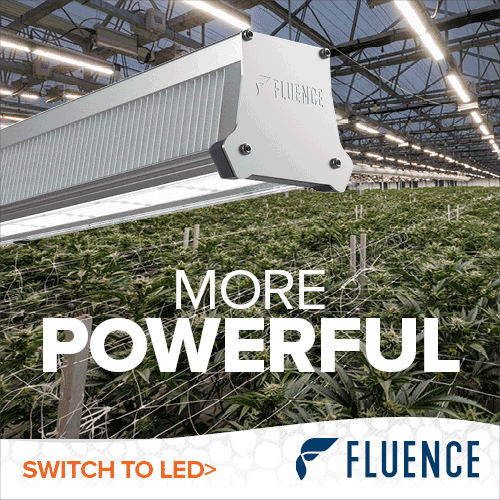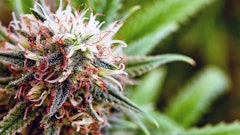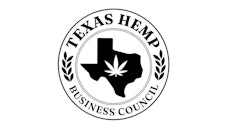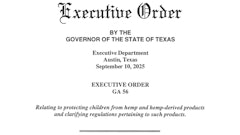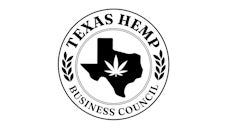
The U.S. Food and Drug Administration (FDA) has issued marketing denial orders (MDOs) to JUUL Labs Inc., effectively banning the company’s products from the U.S. market.
“As a result, the company must stop selling and distributing these products,” FDA officials said in a press release issued June 23. “In addition, those currently on the U.S. market must be removed, or risk enforcement action.”
While the MDOs prohibit the commercial distribution, importation and retail sales of JUUL’s products, they do not restrict consumers’ possession or use of the products.
The FDA came to its decision after reviewing JUUL’s premarket tobacco product applications (PMTAs), the agency said in its release, which stated that officials “determined that the applications lacked sufficient evidence regarding the toxicological profile of the products to demonstrate that marketing of the products would be appropriate for the protection of the public health.”
“Today’s action is further progress on the FDA’s commitment to ensuring that all e-cigarette and electronic nicotine delivery system products currently being marketed to consumers meet our public health standards,” FDA Commissioner Robert Califf said in a public statement. “The agency has dedicated significant resources to review products from the companies that account for most of the U.S. market. We recognize these make up a significant part of the available products and many have played a disproportionate role in the rise in youth vaping.”
Some of JUUL’s study findings raised red flags for the FDA “due to insufficient and conflicting data—including regarding genotoxicity and potentially harmful chemicals leaching from the company’s proprietary e-liquid pods—that have not been adequately addressed and precluded the FDA from completing a full toxicological risk assessment of the products named in the company’s applications,” according to the release.
“The FDA is tasked with ensuring that tobacco products sold in this country meet the standard set by the law, but the responsibility to demonstrate that a product meets those standards ultimately falls on the shoulders of the company,” Michele Mital, acting director of the FDA’s Center for Tobacco Products, said in a public statement. “As with all manufacturers, JUUL had the opportunity to provide evidence demonstrating that the marketing of their products meets these standards. However, the company did not provide that evidence and instead left us with significant questions. Without the data needed to determine relevant health risks, the FDA is issuing these marketing denial orders.”
JUUL plans to seek a stay and will consider appealing the FDA’s decision, according to a statement the company released Thursday.
“We respectfully disagree with the FDA’s findings and decision and continue to believe we have provided sufficient information and data based on high-quality research to address all issues raised by the agency,” JUUL Chief Regulatory Officer Joe Murillo said in the statement, adding, “We remain committed to doing all in our power to continue serving the millions of American adult smokers who have successfully used our products to transition away from combustible cigarettes, which remain available on market shelves nationwide.”
What About Cannabis?
While JUUL operates solely in the tobacco industry, the FDA’s scrutiny of the company’s vape products could leave cannabis operators wondering if the agency will turn its attention to cannabis vape products next.
Reminger Co. attorneys Nathan Lennon and Mark Bush said in a statement to Cannabis Business Times that there is nothing stopping regulators from targeting the cannabis and hemp vaping industries over similar concerns.
“The New York Times neatly encapsulated the issue with JUUL labs in an article earlier this week: ‘The FDA’s decision did not deal with Juul’s relationship to youth vaping. Instead it was based on what the agency said was insufficient and conflicting data from the company about potentially harmful chemicals that could leach out of JUUL’s e-liquid pods. There was not an imminent health threat to consumers, the FDA said, but it did not have enough evidence to assess the potential risks.’
“There is no reason why these same concerns wouldn't also apply to the cannabis or hemp vaping industries,” Lennon and Bush said. “Both cannabis and hemp vaping products are frequently formulated with fruit and other flavors to appeal to either younger consumers or consumers who do not prefer the natural flavor of cannabis and hemp terpenes. In addition to flavorings, there is also rising concern about other additives or leftover contaminants from processing in some cannabis and hemp vaping products as well. As the recall of hundreds of vaping products in Pennsylvania earlier this year has shown, state regulators have similar concerns about scores of other additives beyond flavorings as well. In terms of what this holds for the cannabis and hemp vaping industries, while as a practical matter regulation of these products has been left to the individual states, it is only reasonable to expect more state inquiries and actions similar to what we have seen in Pennsylvania and other states.”
RELATED: Pennsylvania Commonwealth Court Judge Overturns Statewide Vape Recall
On the other hand, Jonathan Havens, co-chair of Saul Ewing Arnstein & Lehr’s Cannabis Law Practice and chair of the firm’s Food, Beverage and Agribusiness Practice, told Cannabis Business Times that is unlikely that any crackdown will come from a federal regulator like the FDA. If anything, he said state regulators may be the ones to place additional scrutiny on cannabis vape products.
“If the question is, what’s the FDA going to do with regard to cannabis vapes? The answer in my mind is nothing. They’re going to continue to do nothing,” Havens said. “If the question is, what are states going to do in response? I guess it’s possible there could be more scrutiny, but frankly, cannabis vapes have been out there for a long time. Even when we’re thinking about the vaping crisis of a couple of years ago, that didn’t relate to any of the products sold lawfully within these state-regulated markets. It was illicit THC. So, I’m cautiously optimistic that state regulators will be able to tell the difference between what happened at the FDA yesterday and what cannabis operators under their jurisdiction are selling in these state cannabis markets.”
Havens noted that state regulators are already tightly regulating cannabis products, which are tested for safety.
"I think it’s easy for people to get concerned when they see all the press attention to the marketing denial orders and how much news has been made about this, but I think it’s important, again, to remember that there are ingredients that are permitted in all these state programs,” Havens said. “All these products are third-party tested. It’s not like we have an unregulated cannabis vape market. It’s very regulated, and I think the states are comfortable with the products that are out there.”
Havens also noted that PAX Labs was born from JUUL several years ago to serve the cannabis industry, and the FDA’s MDOs are related only to JUUL—none of PAX’s products are affected.
“I think it’s important to keep the discussion separate and realize that ... the regulations that surround these cannabis vape products are working, and just because FDA decided that certain JUUL products didn’t meet their high approval barrier, that doesn’t really have any bearing on the cannabis vaping market, at least in my view,” Havens said.
In addition, the FDA only regulates products in interstate commerce, and state-legal cannabis products are intrastate due to cannabis’s Schedule I status.
“I don’t think it’s a case that we can expect the FDA is all of a sudden going to take an interest in cannabis vaping, but it’s possible that states could,” Havens said. “The FDA takes a broad view of what constitutes interstate commerce. Even if a product is only sold in one state, if inputs and components come from multiple states, they might decide to regulate, but they’ve never actively regulated a state-regulated cannabis market in any way.”
And, he said, the MDOs are likely not the end of JUUL’s story; the FDA provided communications to JUUL that will likely act as a roadmap for the company to reapproach the FDA and potentially meet its standards.
“I suspect this is not the end of JUUL in the e-cigarette or vaping space,” Havens said. “I don’t think what FDA said yesterday is that JUUL and its pods could not eventually be approved. I think what they’re saying is, ‘Based on the data that was submitted to us for JUUL as a way to consume e-liquids, … we cannot approve.’ And also, remember, FDA’s approval standard for tobacco products is necessarily a high standard. Instead of the safety and effectiveness standard like FDA uses for, say, drugs and medical devices, it’s a public health standard, and it’s a pretty high barrier to entry because we know about tobacco and the health issues associated with tobacco."

